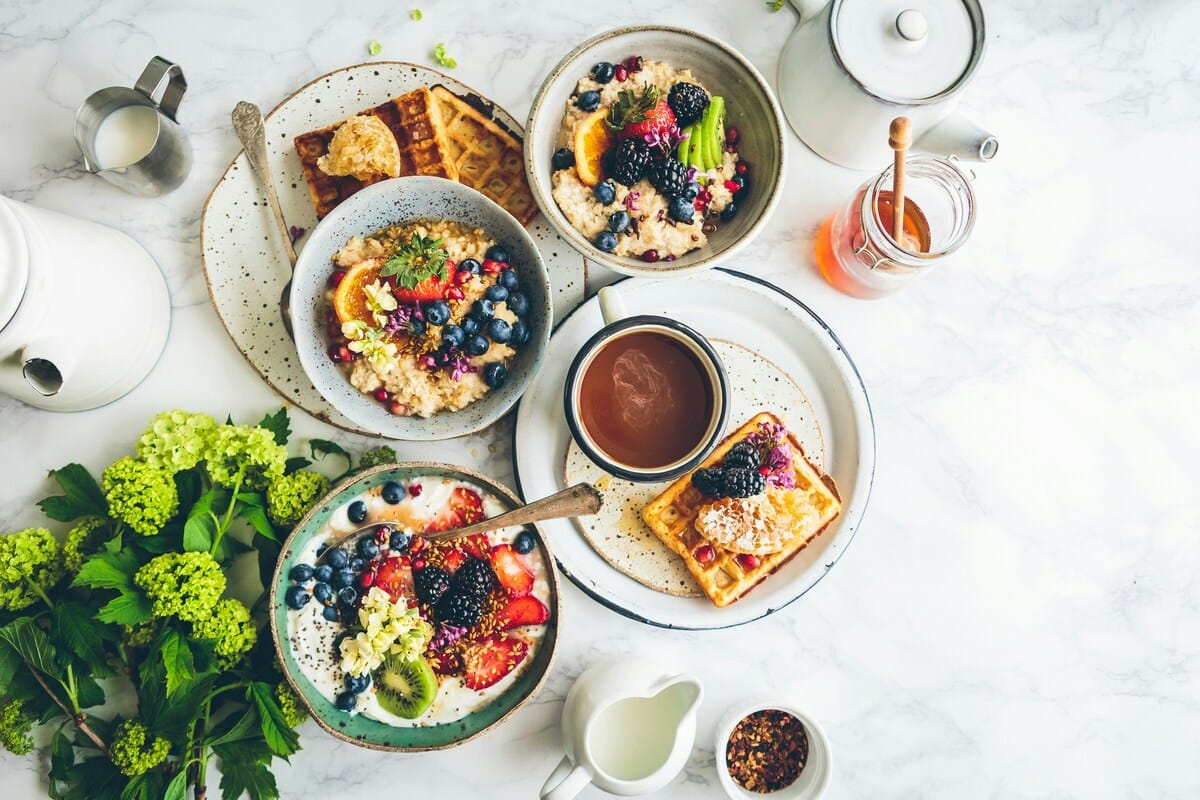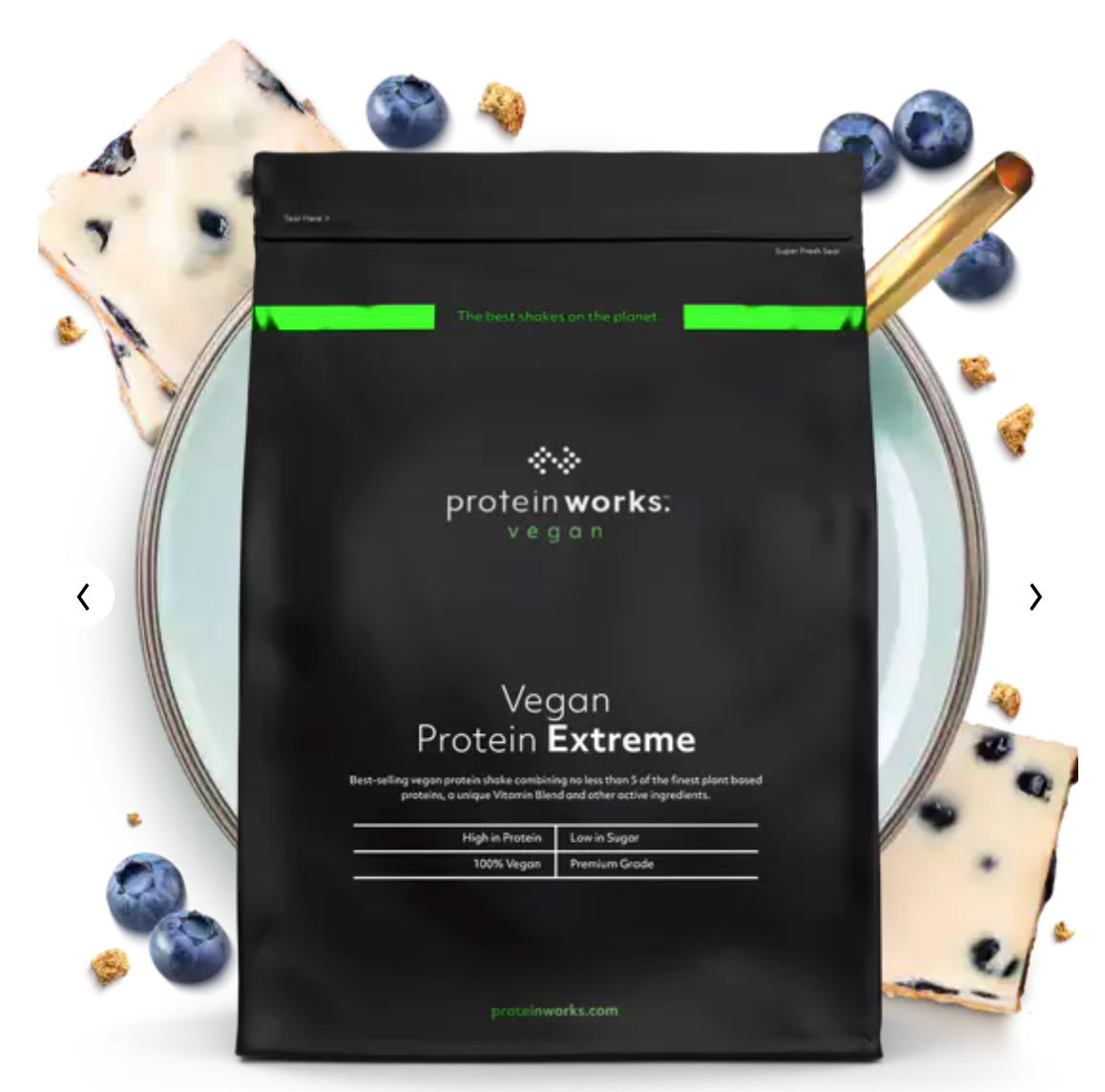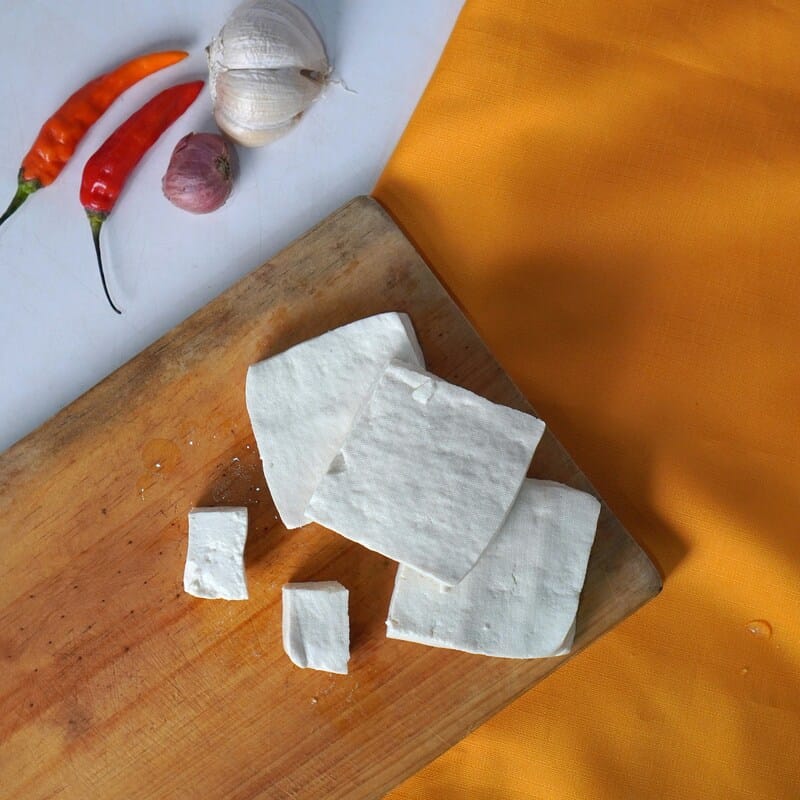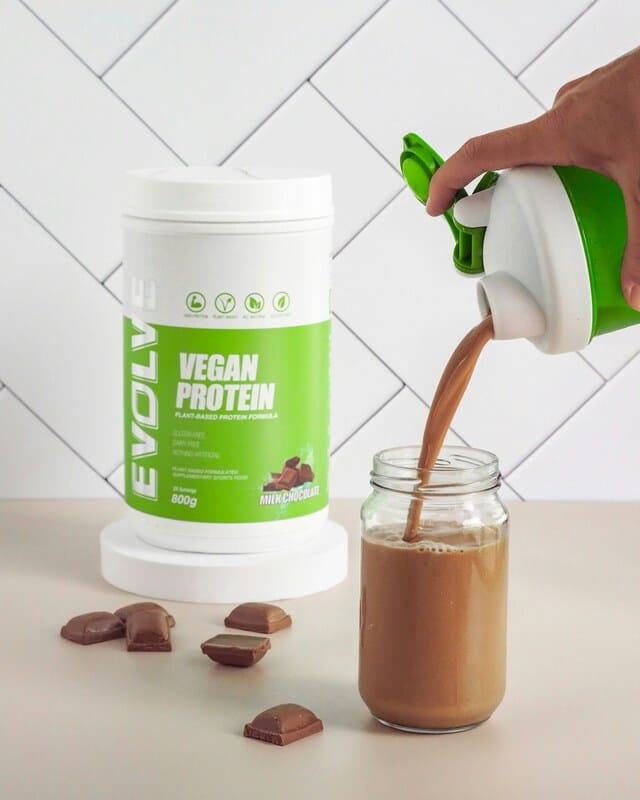Can you have whey protein on a vegan diet?


But that doesn’t mean you can’t use protein powder to help you hit your daily protein goals.
There are plenty of good vegan protein powder options on the market to help you hit your protein goals in a way that’s compatible with your lifestyle choices.
Best protein sources for vegans
Here are some of the best vegan-friendly protein sources:
- Plant protein blends
- Hemp and soy protein powders
- Tofu and other soy products*
Powder blends
If you want to build muscle, it’s important the protein you eat gives you a good mix of all the essential amino acids (EAAs).
Most plant proteins, like rice, or pea, lack some EAAs. Most animal proteins, however, including whey, offer a full complement of EAAs.
To make up for this, you’ll find most vegan protein powders are a blend of various plant proteins. Rice and bean protein is a common mix. MyProtein’s Impact Vegan Protein is a blend of pea and fava bean protein.

Complete plant proteins
Other plant protein sources, however, do offer a full complement of EAAs.
Hemp and soy, for example, are both complete proteins. They offer a full complement of essential amino acids.
For this reason, you can find soy and hemp protein powders in stores that are not blended with other protein sources.
Whole food vegan protein sources
Vegan-friendly (and even vegetarian-friendly) sources of protein that are not protein powders tend to either:
- Be expensive
- Have a poor calorie-to-protein ratio
Take a look at the image below. It's a screenshot of a spreadsheet that compares costs and calories versus protein content for a number of foods commonly considered “high protein”:

Notice that protein powders tend to be the best options. (And that this is true for both animal and plant-based powders.)
Eating large quantities of beans, grains, or nuts becomes either expensive, or high in calories. Especially considering the relatively low amount of protein.

Downsides of vegan protein powder
Vegan protein powders aren't necessarily complete solutions for the vegan protein problem.
Plant protein sources, including powders, tend to come with some downsides.
Here are some of them:
Lower leucine content
Leucine is the amino acid most responsible for triggering muscle protein synthesis[2]. So if you’re trying to build muscle, you’ll want to choose protein sources high in leucine.
Vegan protein powders, while they can be considered “complete”, with a full complement of amino acids, many contain little leucine relative to whey protein powder.
Poorer mix-ability
One of whey protein powder’s benefits is its versatility. You can mix it in oats, yoghurt, and all kinds of other foods. It blends well to make good smoothies. It provides a strong protein-boost to many foods you’d otherwise consider poor for muscle building. You can even bake with it.
This is, in part, down to how whey (and casein) absorb water. Since whey is, originally, a liquid itself, the powdered form absorbs water very well.

Many vegan protein powders, however, are made from foods that are usually bone-dry. Rice, peas, beans, grains… These produce powders with a chalky texture that create a cement-like mixture when you mix them with water.
This makes vegan protein powders less versatile, and often less enjoyable, than dairy-based protein powders.
Poorer taste and texture
Whey protein powder is the original, and most popular, kind of protein powder out there. For decades now, there has been strong commercial interest and competition.
Competition pushes warring manufacturers to create better products. When it comes to taste, dairy-based protein powders have come on leaps and bounds. It is, after all, in the manufacturer’s best interests to invest heavily in their best-selling products.
Vegan protein powders have only started growing in popularity more recently. Even still, they’re not as popular as dairy-based powders. For this reason, you’ll notice that vegan powders offer fewer flavour options, and that these flavours tend to be less palatable.
Benefits of vegan protein powders
So, what makes vegan protein powders a good addition to your diet?
Here are some of them:
More economical than vegan-friendly whole food alternatives
The best thing about protein powders?
You can buy them in bulk, while they’re on sale, and store them in your cupboard.
You can buy an entire year’s supply during Black Friday sales and snag yourself a supply that lasts until the same November sales the following year.
This is exactly what I’ve done for the past three years:
And you can do the same.
Sure, many vegan sources of protein, like rice and beans, don’t go bad in a hurry. But they’re also far lower in protein than protein powders are.
Recall our spreadsheet from earlier:

Protein powders offer the highest amounts of protein by weight, but prices decrease proportionally, making them an excellent deal.
Better calorie-to-protein ratio
Ever tried hitting a one-gram-per-pound-of-bodyweight daily protein target using only vegan wholefoods? Ever done it without over-relying on soy?
Below, we tried to do just that, sticking to higher-protein, vegan sources:
A small, 175lb male would barely have gotten 85% of the way towards that 1g/lb of bodyweight daily target.
But they would have consumed 3,299 calories.
This diet is also far from exciting. There are no dressings, sauces, or anything else to spruce up the huge quantities of quinoa and brown rice. Add those in for taste, and you push calories even higher.
Check out what happens when I include 100 grams of vegan protein powder:
I’m able to entirely remove the high calorie seeds, and half the quantities of both the brown rice and the quinoa.
The result?
Our 175lb male would have exceeded his daily protein target, while cutting overall calories to 2,622.
100g of protein powder might seem like a lot, but if building muscle on a vegan diet is your goal, then eating plenty of protein is a must. And if you want to do that without overloading your digestive system, or eating a crazy number of calories, vegan protein powders are your best option.
Lactose-free
While this won’t be important for everyone, vegan protein powders are universally lactose free.
Dairy-based protein powders are not.
It's important to note, though, that whey protein isolate contains almost no lactose at all. So most lactose intolerant people should be able to consume some dairy-based protein powders without issue.
But, for those who must absolutely avoid lactose and dairy products at all costs (those with a dairy allergy, for example), vegan protein powders offer a solution.
Whey protein isolate: A purer, more refined form of whey protein than whey protein concentrate. Contains less lactose, fat, and carbohydrate, and more protein per gram, than whey concentrate. More expensive as a result.
Two practical recommendations for vegans looking to maximize muscle growth
1) Prioritize total daily protein intake
Rather than worrying about the source of your protein intake, aim for a large enough daily total.
Plant-based sources are less efficient and produce a lower anabolic response than animal proteins[3], so you’ll have to eat a larger total quantity of protein to compensate.
There's evidence that, at least in untrained subjects, there's no difference in size and strength gains between those on wholly plant-based, and those on omnivorous diets, when protein is equated at 1.6g/kg of bodyweight.[4]
2) Fill the nutritional gaps in your diet
Second, look to fill the gaps in your diet’s nutritional profile.
Use a tool like Cronometer to audit a typical day’s, or week’s, eating. Take note of where you’re falling short in vital vitamins and minerals, then fill those gaps.
Common ones for vegans will include:
- Calcium
- B12 and other B vitamins
- Iron
- Zinc
Bear in mind, though, the poorer digestibility and absorbability of the nutrients you find in plants. It’s safer to slightly underestimate the amount you’re really getting.
Supplementing to fill these gaps is therefore wise. Synthetic forms of certain vitamins are actually more easily absorbed than their food-based forms. (For example, synthetic Vitamin A doesn’t need to be converted from provitamin A in the body, while folic acid is more absorbable than plant-based folate.)
Wrapping up
Whey protein powder is not vegan-friendly. It's made from dairy products, so vegans can't include whey protein powder in their diets.
However, vegan protein powders offer a viable alternative. Though they tend to be less palatable than dairy-based powders, there's evidence that, at least in untrained individuals, muscle size and strength gains are equal, no matter your favoured protein sources. You just have to eat enough of it.
Aim to eat 0.7-1.0g of protein per lb of bodyweight per day for best results. Vegan protein powders can help you hit these high targets.
References
- [1] Messina M, Nagata C, Wu AH. Estimated Asian adult soy protein and isoflavone intakes. Nutr Cancer. 2006;55(1):1–12. doi:10.1207/s15327914nc5501_1
- [2] Duan, Yehui et al. “The role of leucine and its metabolites in protein and energy metabolism.” Amino acids vol. 48,1 (2016): 41-51. doi:10.1007/s00726-015-2067-1
- [3] Aragon, Alan. Flexible Dieting: A Science-Based, Reality-Tested Method for Achieving and Maintaining Your Optimal Physique, Performance & Health (p. 113). Victory Belt Publishing. Kindle Edition.
- [4] Hevia-Larraín V, Gualano B, Longobardi I, et al. High-protein plant-based diet versus a protein-matched omnivorous diet to support resistance training adaptations: a comparison between habitual vegans and omnivores. Sports Med. Feb 2021;doi:10.1007/s40279-021-01434-9
